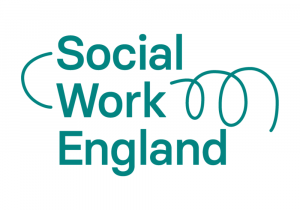Increased visibility could be be behind rise in complaints from the public - Social Work England

Social Work England has indicated its ‘increased visibility’ since taking over from The Health and Care Professions Council could be behind a rise in referrals from members of the public about social workers.
The regulator says it is still receiving 35 per cent more Fitness to Practice referrals than expected since launching in 2019.
Nearly two-thirds of these (64.9 per cent) come from the public. However, less than half of all referrals end up proceeding to investigation.
Social Work England said its website, which has a clearly marked tab called ‘Concerns’ and a page of advice, could be driving referrals from the public.
A spokesperson said: “It is difficult to pinpoint the increased referrals from members of the public to a single factor but we do think that our increased visibility may be one factor in the sustained increased numbers of referrals we have received since our launch in December 2019.”
The regulator revealed in its latest report on the profession, Emerging Themes that it continues to receive “concerns at a higher rate than we anticipated” involving potential Fitness to Practice (FtP) investigations.
The report covers 1 December 2020 to 30 November 2021 during which the regulator received 2,328 FtP referrals. But of those triaged, 55 per cent did not meet the triage test and 45 per cent progressed to investigation.
Authors of the report state: “We want to understand the increase in referrals, which are, in the majority, made up of direct referrals from members of the public and cannot be fully explained by any one cause, such as Covid-19.
“Engagement from the public and from people who have direct involvement with social workers is important and enables us to respond swiftly to matters of public protection. However, there are concerns that are referred to us that do not relate to an individual social worker’s fitness to practise.”
There are particular concerns about court proceedings, and the authors note: “This is most often in relation to social workers involved in cases concerning children and their families.
“Social workers in court settings represent the interests of the person or people they are supporting. While they may work with others, including the family and community members in a person’s life, they work in the best interests of that individual.
“This means that their testimony can sometimes conflict with the views, wishes and accounts of the people around them, including parents, relatives and other people close to an individual.”
Social Work England is working to clarify which public concerns it can investigate and make changes to its website and the advice given when people contact them.
Research has engaged both people with lived experience of social work or reporting social workers and is examining how the public raises concerns.
The spokesperson added: “We are drawing together insights from our first two years of operations, our engagement with the sector and Woodnewton research to inform refinements to our web content and online referral process so that we can support people to make a better-informed decision about whether to raise concerns with us.
“We have already adapted some of the content on our website to make our regulatory role clearer, and we are working to redesign our online referral process to further support this work.
“Early findings have helped us to consider our guidance and use of language as we support people to make informed decisions about raising a concern about a social worker.”
Across FtP referrals as a whole, employers make up the second largest group at 20.6 per cent, self-referrals stand at 7.5 per cent, other social workers at 4.7 per cent and other agencies at 2.2 per cent.
Concerns were most commonly about poor or inappropriate communication (27.4 per cent), dishonesty (15.9 per cent) or safeguarding concerns (12.3 per cent).
Of the 45 per cent of cases that proceed to investigation, a third (30 per cent) were referred to case examiners, and 26 per cent received a decision. Of those cases that have received a decision, 57 per cent were closed, 34 per cent were referred to a hearing and nine per cent were resolved through accepted disposal.
Social Work in England: Emerging Themes is the second report from Social Work England in a series of three detailed explorations of the sector. The final report in 2023 will serve as a landmark overview of social work and its crucial role in society.
